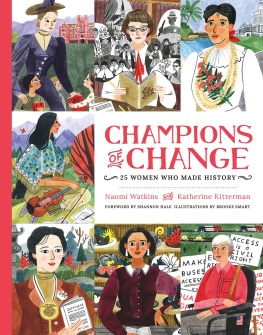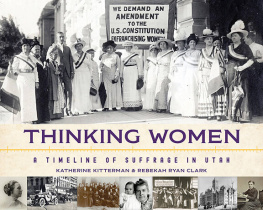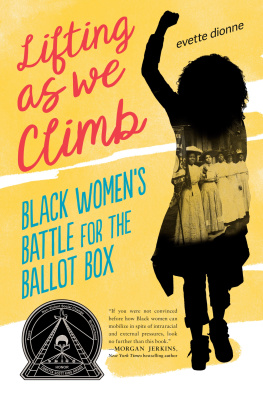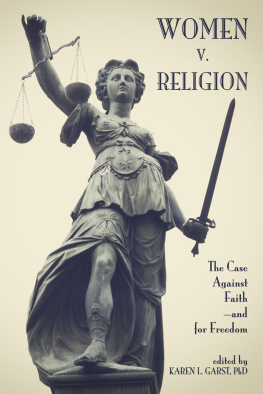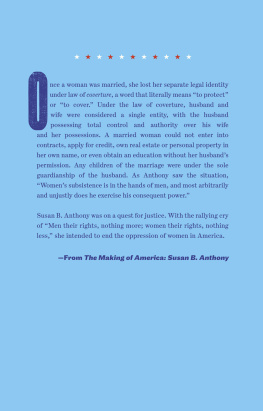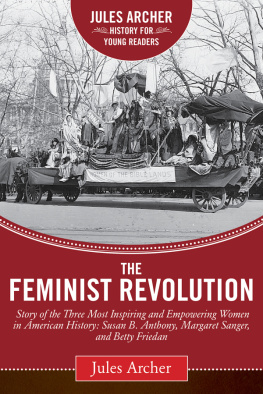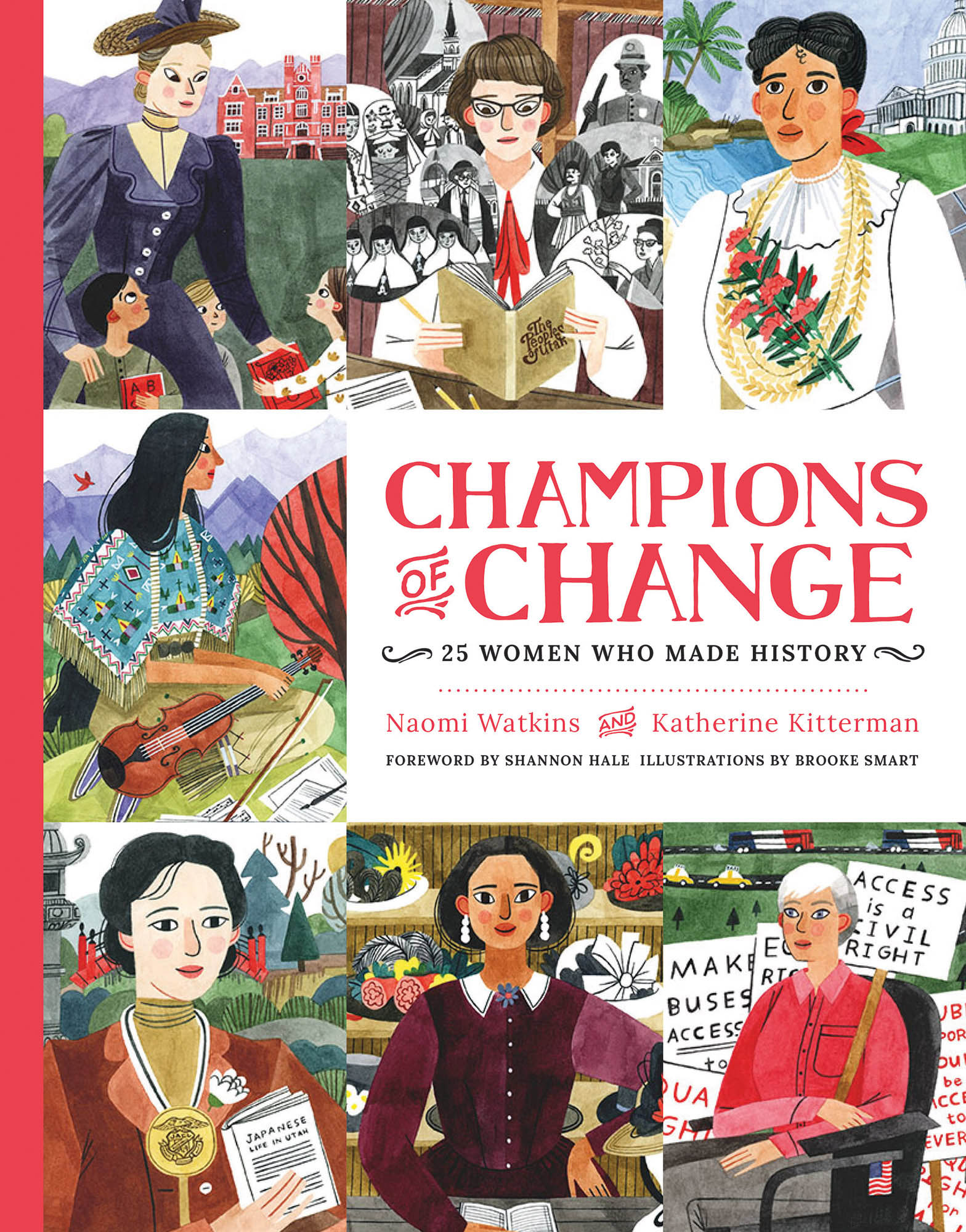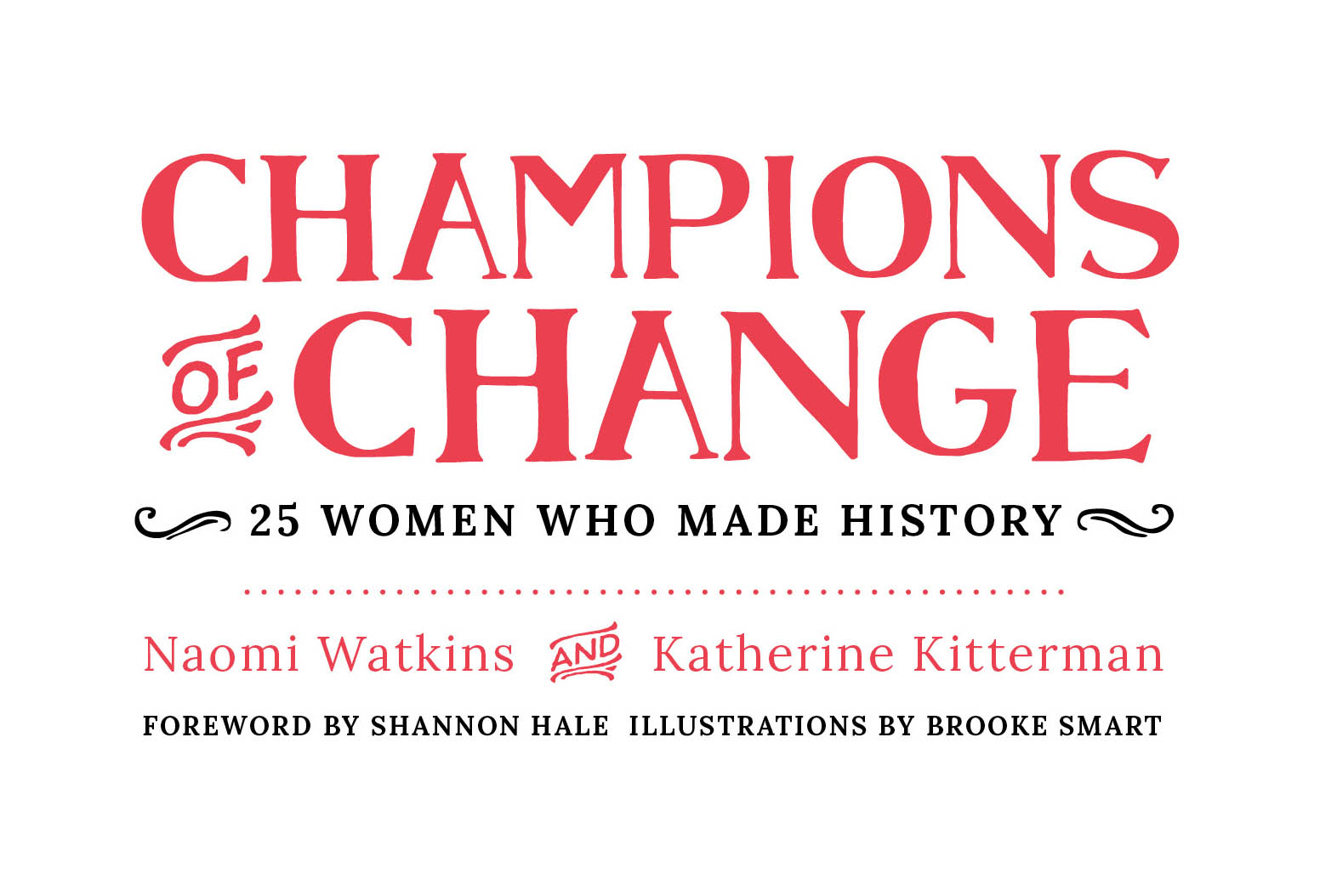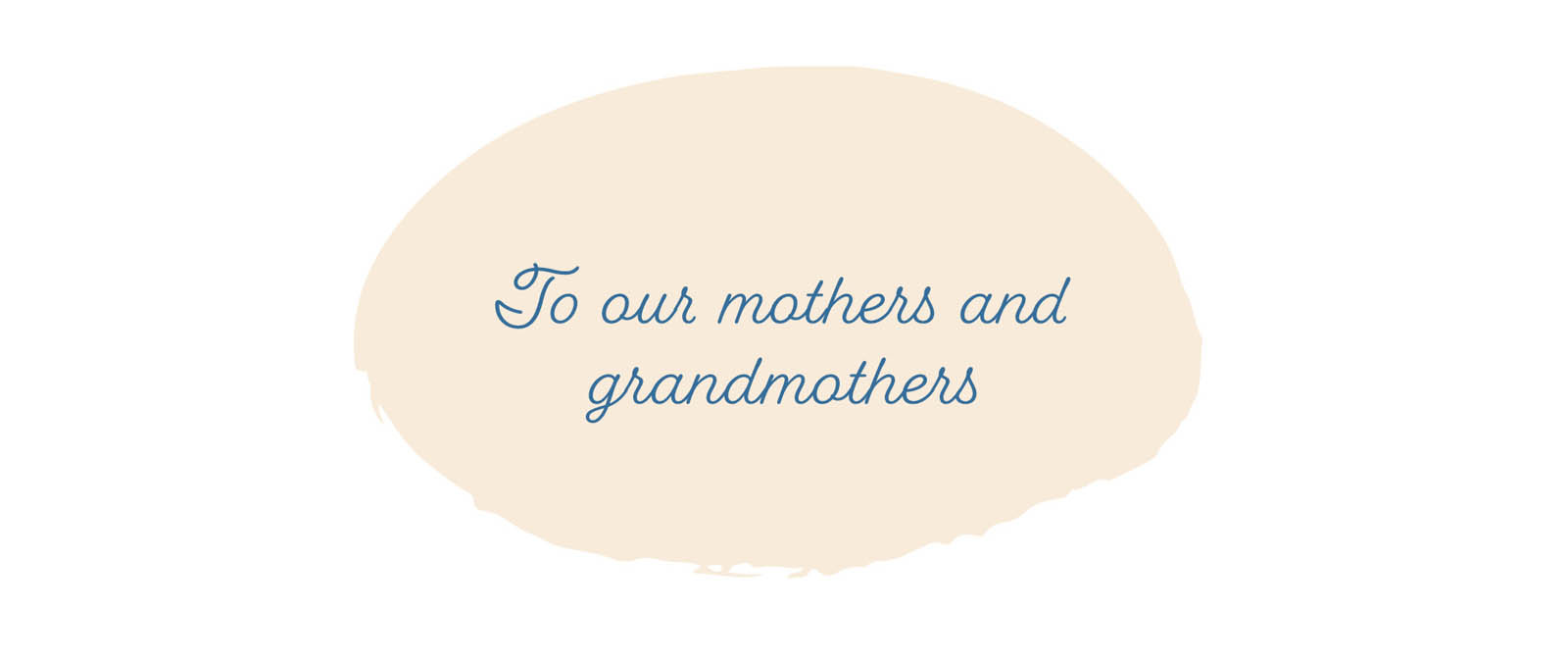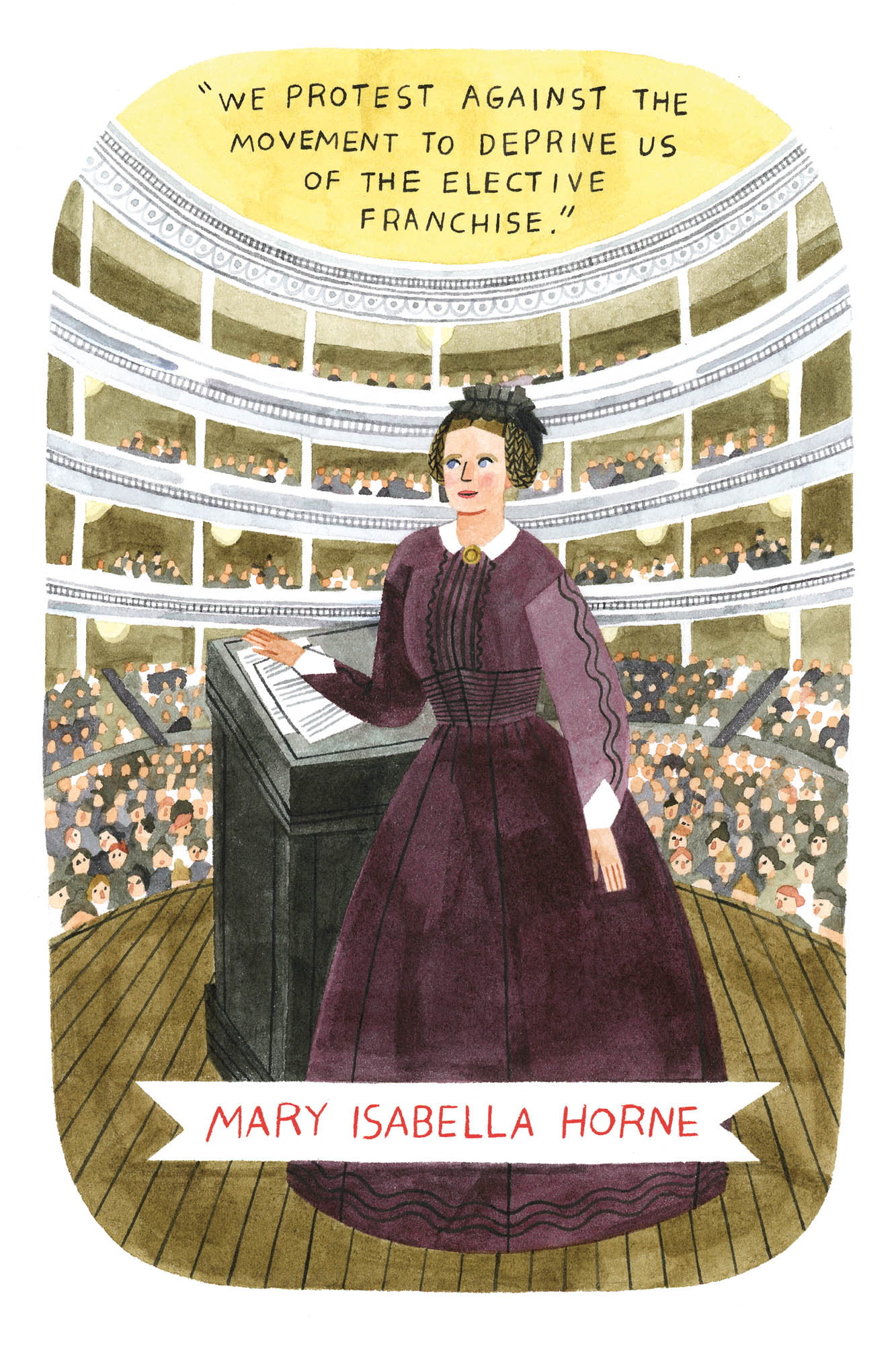Digital Edition 1.0
Text 2019 Naomi Watkins and Katherine Kitterman
Illustrations 2019 Brooke Smart
All rights reserved. No part of this book may be reproduced by any means whatsoever without written permission from the publisher, except brief portions quoted for purpose of review.
Published by
Gibbs Smith
P.O. Box 667
Layton, Utah 84041
1.800.835.4993 orders
www.gibbs-smith.com
Cover design by Nicole LaRue, Small Made Goods
Library of Congress Cataloging-in-Publication Data
Library of Congress Control Number: 2018968414
ISBN 13: 9781423652649 (ebook)
Contents
Foreword
by Shannon Hale
Newberry Honor Award-winning author
G rowing up as a girl in the 1980s, I was desperate to know more about women in history. In school and in church, almost all of the great and important people we learned about were men. I absorbed these stories and lessons, and in my own fragile heart I often wondered, do girls actually matter at all?
As I grew older, these questions only got louder. In high school, history focused on the doings of men, with barely one class period brushing over the womens suffrage movement. In English class we studied novels written by men; in science we studied the discoveries of men; in Drama we performed plays written by men. I had a mind and a desire to use it, but I felt deeply unsure that as a girl, there was a place for me in this world.
I clung to the few women in history I learned aboutCleopatra, Elizabeth I, Queen Victoria. I revered these women and longed to be like them. Women of power. Women who did things. But they were royalty from long ago and far away, so unlike little Utah girl Shannon. I could barely imagine stretching myself far enough to make room for the potential I felt blooming inside me.
I would have cherished stories of women closer to home, women who believed in equality, women who worked diligently to secure rights for all. Women who believed that girls do matter. Women like Emma McVicker, Dr. Martha Hughes Cannon, Zitkla-, and Mignon Barker Richmond, who Id never heard of before this book, despite the fact that we attended the same high school.
Its vital for girls to read stories about all kinds of womento hear about women in leadership, women in education, women who pushed boundaries and blazed trails. Reading these kinds of stories helps girls recognize more possibilities for their own lives. Its also vital for boys to hear stories about all kinds of womento grow up seeing and knowing that girls and women can be leaders and role models. Stories help us gain more empathy for others while enlarging our own lives. I know I will be sharing these stories with my son and my daughters.
Introduction
C hances are you have heard of Susan B. Anthony, Elizabeth Cady Stanton, and Ida B. Wells, all leaders in the womens suffrage movement, the decades-long struggle for womens voting rights in the United States. For a long time, only white men who were American citizens were allowed to vote. Voting was just one of many things that women and people of color were not allowed to dothey were not allowed to own property, sign contracts, or even attend colleges and universities. Many people worked long and hard to gain voting rights for women and people of color.
The effort to gain womens rights in the United States began in 1848 at a convention in Seneca Falls, New York. But it was in the western United States where the womens movement found its first great triumphs. The legislature of Wyoming territory decided to give female citizens the right to vote in December 1869. Few women lived in the new territory, and the all-male legislature figured they didnt have much to lose by giving women these rights. A few months later, Utahs territorial legislature followed Wyoming, and a few dozen women voted in a local election in Salt Lake City on Valentines Day, 1870. This was the first election in which American women voted after the Seneca Falls convention. When these territories applied for statehood, they, along with Idaho and Colorado, became the first four states to include womens suffrage, or voting rights, in their state constitutions. The West led the way!
It would take several more decades for the United States to ratify the 19th Amendment that made it so voting rights could not be denied because of gender. Like any social or political movement, this path to gaining womens voting was difficult, rocky, and messy. It involved many different women and men working togetherand sometimes against each other. They did not always agree. They oftentimes made mistakes, and there were setbacks. But they worked hard, they sacrificed, and they persevered. Even still, many women of color were denied U.S. citizenship and voting rights after the passage of the 19th Amendment, and they continued to fight for their rights. Today, we still wrestle with the questions of Who is a citizen?, Who gets to vote?, and Whose voices and stories matter?
We lose the full scope of the work and diversity of the people involved in making history when we only tell the same stories about well-known people. This book shares stories about women (and one man) who were friends (and even adversaries), hosts, pen pals, advisors, and colleagues of many of these well-known suffrage players. The names and work of these Western leaders may not be as well known, but they understood their unique communities and knew how to get things done.
The fight for womens voting rights was just one step in a long list of rights that have had to be won. Even before the passage of the 19th Amendment, and especially since, both women and men have worked to better their communities in the arts, business, education, law, medicine, military, music, writing, politics, religious and community organizations, science, sports, and more. This book also includes women who worked throughout the twentieth century to open doors and advance their communities. Champions are not reserved for the firsts and onlys. The seconds and thirds and thirty-thirds and so onripple effects of the firstsare equally important.
In 2020, we commemorate three significant anniversaries: the 150th anniversary of a woman first voting since the start of the suffrage movement, the 100th anniversary of the ratification of the 19th Amendment, and the 55 th anniversary of the Voting Rights Act, which extended needed protections for minority voting rights These anniversaries offer an opportunity to reflect and celebrate. They also serve as an opportunity to consider what you can do to make a difference. Your contributions do not have to be on a national or global level or bring you fame or fortune; you can start in places and ways you know best, and learn from and find inspiration in the triumphs and setbacks of those who did this work before you.
So who are your heroes? How will you honor their stories? How will you contribute? How will you tell your story?
We cant wait to see!
Mary Isabella Horne

